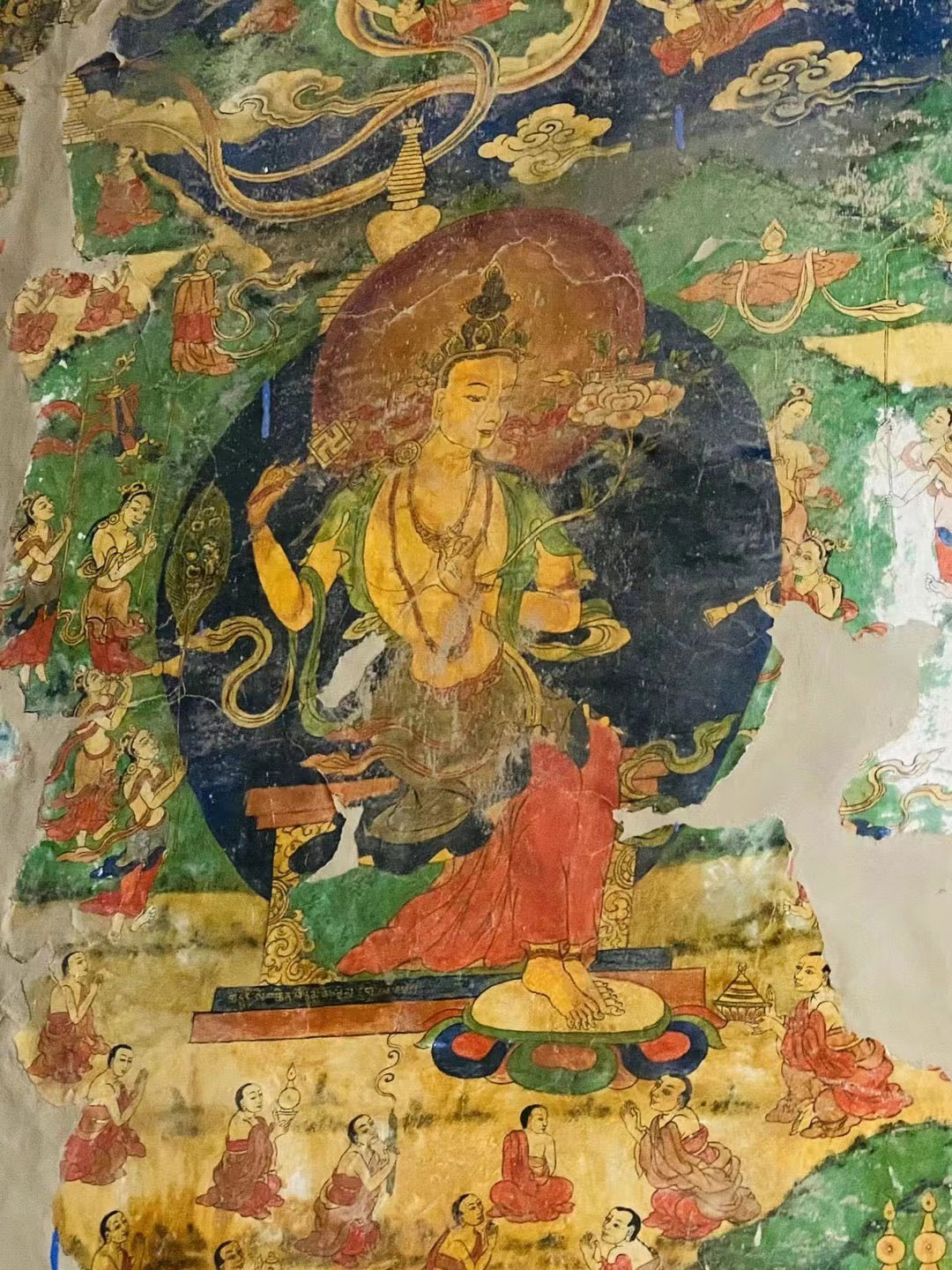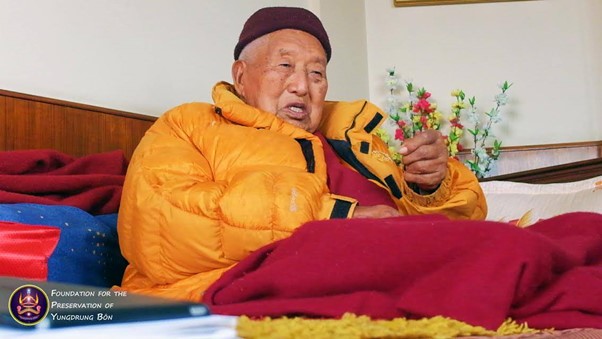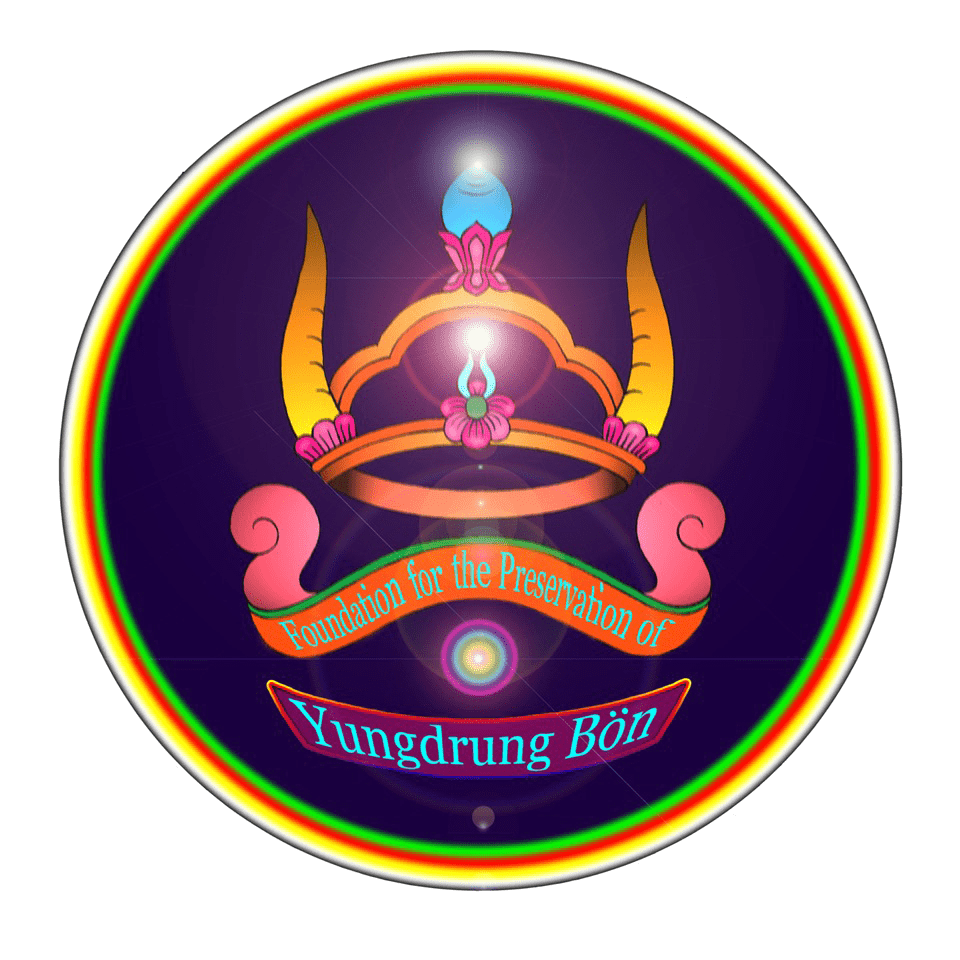Mucho Demdrug Turning the Wheel of Bön

Today is the anniversary of when Mucho Demdrug (Tib. Mu-cho ldem-drug), one of the seven sons of Buddha Tönpa Shenrab Miwoche, turned the Wheel of Bön.
When Tönpa Shenrab passed into nyangen ledepa (Tib. mya-ngan las-‘das-pa – parinirvana) in 7817 BC, Mucho Demdrug became Tönpa Shenrab’s Regent (Tib. gdung-sob). He descended on Earth from the realm of Cha (Tib. phywa) when the period of the Teachings of Body (Tib. sku-yi bstan-pa) was completed in 6016 BC and took charge of the Yungdrung Bön doctrines and their propagation in the new 10,000-year cycle of the Teachings of Speech (Tib. gsungs-gi bstan-pa). Under Mucho Demdrug’s guidance 84,000 Yungdrung Bön doctrines of Sutra, Tantra and Dzogchen (Tib. mdo sngags sems gsum) were translated into 360 languages by the Six Great Translators (Tib. lo-tsa drug / mkhas-pa’i phul du phyin-pa’i lo-tsa-ba) and others and spread far and wide all over Eurasia and, later, to the rest of the world. Homage to the Great Regent Mucho Demdrug!
The Four Wheels of Bön:
TA-WA YE PHAB
།།ལྟ་བ་ཡས་ཕབ།
Take the highest View.
CHYO-PA ME YAR-DZEG
།སྤྱོད་པ་མས་ཡར་འཛེག།
Step up with your activities, starting from the smallest virtues.
NYING-JE ZHI-ZUNG
།སྙིང་རྗེས་གཞི་བཟུང་།
Whatever practice you do, take compassion as the base.
PHA-ROL-CHYIN CHU CHYO
།ཕ་རོལ་ཕྱིན་བཅུ་སྤྱོད།།
Practise the Ten Paramitas with determination.These four lines are what we call The Four Wheels of Bön. This Teaching is the foundation and the essential summary for all kinds of methods and practices found in Yungdrung Bön.
THE FOUR WHEELS OF BÖN ༎བོན་འཁོར་ཚིག་བཞི།, Oral Teachings by Yongdzin Lopön Tenzin Namdak Rinpoche, Transcribed, compiled and edited by Carol Ermakova and Dmitry Ermakov, UK: FPYB, 2016, p. 23.

Generally, Dzogchen nowadays seems to be brought down to an easy way, but in our tradition, long before, this was the hardest to understand and study. So in our school, for example, in the monastery, it is the last subject we teach; when everybody is set up and has enough knowledge – then they are ready to be taught Dzogchen. But nowadays it looks as if it’s brought down to a very easy way. Everybody thinks and says – I myself have heard this, too – ‘look to the mind and how it is thinking. If you look there, you cannot find any trace – no trace, no colour, no form – and then there is an unspeakable Hedewa [Tib. had-de-ba] or something for a moment.’ Quite a lot of followers and practitioners are satisfied by that, they believe that that is real Nature. If that were so, then it’s not really necessary to study. […] That is quite a simple way, it looks nice if you do this according to philosophical study but […] if you understand that State, the real View should be the antidote to purify obscurations and defilements. […]
This [Dzogchen] View is the antidote, the complete and very powerful antidote which purifies ignorance and emotions, the five poison consciousnesses and defilements.
So that is why it is important to teach, study and keep [these Teachings] respectfully for years and years; that is needed.
“Whether you waste it or keep it properly is up to you.”From: Yongdzin Lopön Tenzin Namdak Rinpoche, TEACHINGS ON ZHANG ZHUNG NYAM GYUD (Vimoutiers, 2004), Trscrbd & Edited by Carol Ermakova & Dmitry Ermakov. [‘Bring po sor bzhag, Ch. 5.]
Featured image of Mucho Demdrug courtesy of Drubdra Khenpo Tsultrim Tenzin.
